Adresse
Berliner Str 120/121
13187 Berlin
Germany
Koordinate
52.568454, 13.4123577
The orphanage was founded in response to the pogroms against the Jewish population after the assassination of Tsar Alexander II of Russia. In the course of this, the Berlin Relief Committee brought 39 Jewish boys aged 6 to 11 from Russia to Berlin in 1882. For their accommodation, a plot of land was purchased in Pankow at Berliner Strasse 121, which was occupied on October 22, 1882. Free places were filled with orphans from the Jewish community in Berlin. Financially, the orphanage was supported by numerous foundations, one of which allowed the purchase of the annex building in 1901, creating capacity for more boys.
The daily routine at the orphanage was strictly structured. The day was filled from 6 to 21 o'clock with housekeeping, lessons and sport. In the breaks a music cabinet, library and garden were available. Furthermore, the children could participate in the orchestra, choir and school newspaper. At the age of 14, the boys were placed with craftsmen for apprenticeship, e.g. as carpenters, gardeners and tailors. After completing their apprenticeship, the children were still supported financially if necessary. Until 1910 198 children received a place in the orphanage, 114 of them had learned a trade.
After a fire had destroyed the building in 1911, a new building was built between 1912/13 under the direction Alexander Beers and inaugurated on 21.09.1913. From 1935 the school was enlarged in the course of the increasing exclusion of Jewish pupils from the general school system, and from 1936 girls were admitted for the first time. After the orphanage was stormed by Nazis in the summer of 1938, some of the children were able to escape with Kindertransport in the same year. After 1940, the orphanage was merged with the Auerbach orphanage in Prenzlauer Berg, from where deportations to extermination camps took place. In 1942, the building was confiscated by the SS, which put an end to the Jewish use of the building.
Ereignisse
Beschreibung
The later property Berliner Straße 121 is owned by the landowner Hartwig
Epoche universalgeschichtlich
Beschreibung
Purchase by master carpenter Leopold Schluder
Epoche universalgeschichtlich
Beschreibung
New construction of an apartment building and presumably annexes
Epoche universalgeschichtlich
Beschreibung
Laundromat owner [Moulhold?] registered as fifth owner in the land register
Epoche universalgeschichtlich
Beschreibung
Acquisition by Hermann Makower and establishment of an educational home for orphaned Jewish boys
Datierung
15. August 1882
Epoche universalgeschichtlich
Beschreibung
Jewish community becomes the owner
Epoche universalgeschichtlich
Beschreibung
Jewish community takes over administration
Epoche universalgeschichtlich
Beschreibung
Renamed "Second Orphanage of the Jewish Community of Berlin
Epoche universalgeschichtlich
Beschreibung
Purchase of the property at Berliner Strasse 120 by the Jewish community, conversion of existing buildings
Epoche universalgeschichtlich
Beschreibung
Construction of a bowling alley
Epoche universalgeschichtlich
Beschreibung
Construction of a gymnasium
Epoche universalgeschichtlich
Beschreibung
Roof truss fire in the house of education
Epoche universalgeschichtlich
Beschreibung
Demolition of the buildings of the education house
Epoche universalgeschichtlich
Beschreibung
Start of new construction of orphanage and redesign of outdoor facilities with gymnasium and bowling alley
Epoche universalgeschichtlich
Datierung
21. September 1913
Epoche universalgeschichtlich
Beschreibung
Vacation home on the Baltic Sea in Wustrow is donated
Epoche universalgeschichtlich
Beschreibung
Institutional school is a four-grade elementary school
Epoche universalgeschichtlich
Beschreibung
Establishment of the V. elementary school
Epoche universalgeschichtlich
Beschreibung
Nazis storm the orphanage and wreak havoc
Epoche universalgeschichtlich
Beschreibung
Change of use from orphanage to Jewish old people's home
Epoche universalgeschichtlich
Beschreibung
Exodus of the Jewish Home for the Elderly
Datierung
15. August 1941
Epoche universalgeschichtlich
Beschreibung
The orphanage is handed over to the police administration; presumably used as an administrative building.
Epoche universalgeschichtlich
Beschreibung
Purchased by police administration; used, among others, by the Central Sighting Office of the RSHA.
Datierung
17. Dezember 1942
Epoche universalgeschichtlich
Beschreibung
Use as district office Pankow
Epoche universalgeschichtlich
Beschreibung
Administration building of the German Sports Committee
Epoche universalgeschichtlich
Beschreibung
Polish Mission and Embassy
Epoche universalgeschichtlich
Beschreibung
Land becomes property of the GDR
Epoche universalgeschichtlich
Beschreibung
Cuban embassy
Epoche universalgeschichtlich
Beschreibung
to the Jewish Claims Conference
Epoche universalgeschichtlich
Beschreibung
Purchase by the Walter and Margarete Cajewitz Foundation
Epoche universalgeschichtlich
Beschreibung
Comprehensive building renovation including restoration of the prayer hall ceiling
Epoche universalgeschichtlich
Beschreibung
Foundation of the Association of Sponsors and Friends of the former Jewish Orphanage in Pankow e.V.
Datierung
07. September 2000
Epoche universalgeschichtlich
Beschreibung
Ceremonial inauguration with the participation of former orphans and relatives
Epoche universalgeschichtlich
Beschreibung
District library, Caritas Association nurses' school, Berlin addiction aid day center
Epoche universalgeschichtlich
Beschreibung
Ceremonial opening of the former prayer hall and dedication as Pankow cultural center
Datierung
27. Januar 2002
Epoche universalgeschichtlich
Literatur
Albrecht, Peter-Alexis, Baruch Brent, Leslie u. Lammel, Inge (Hrsg.), Verstörte Kindheiten. Das Jüdische Waisenhaus in Pankow als Ort der Zuflucht, Geborgenheit und Vertreibung (Schriftenreihe der Cajewitz-Stiftung: Band 1), Berlin: Berliner Wissenschafts-Verlag 2008.
Grundwald, Isidor, Bericht über das Zweite Waisenhaus der jüdischen Gemeinde zu Berlin in Pankow für die Zeit von 1901-1910. Berlin 1910.
Lammel, Inge, Das jüdische Waisenhaus in Pankow. Seine Geschichte in Bildern und Dokumenten, Berlin 2001.
Frühauf, Matthias, "Das zweite Waisenhaus der Jüdischen Gemeinde zu Berlin", in: Lammel, Inge, Jüdische Lebenswege. Ein kulturhistorischer Streifzug durch Pankow und Niederschönhausen (Hrsg. vom Förderverein ehemaliges Jüdisches Waisenhaus Pankow e.V., der Vereinigung der Verfolgten des Naziregimes und dem Bund der Antifaschisten Pankow e.V.), Teetz/Berlin: Hentrich & Hentrich 2007, S. 307-326.
Redaktionell überprüft
Aus
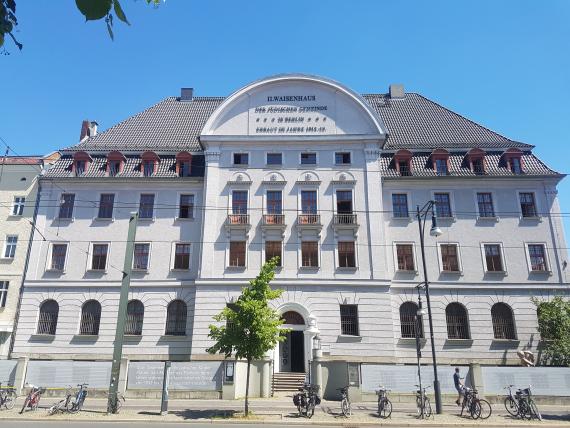
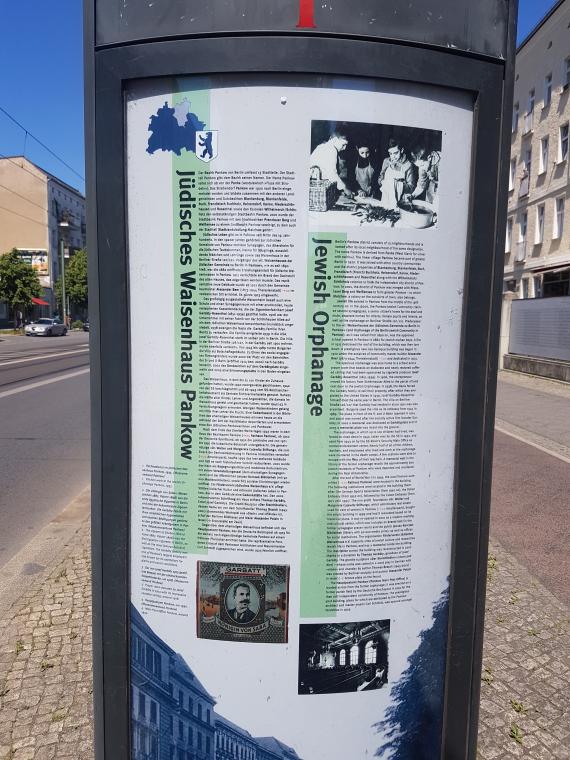
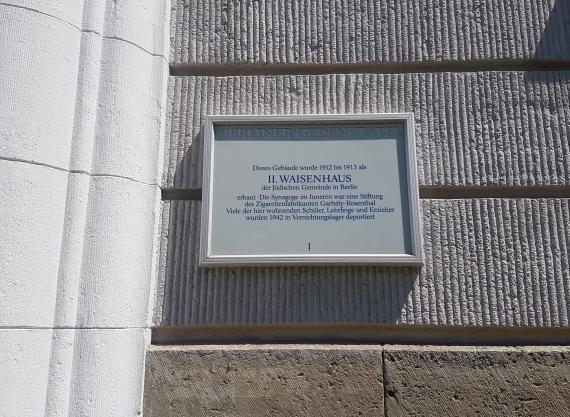

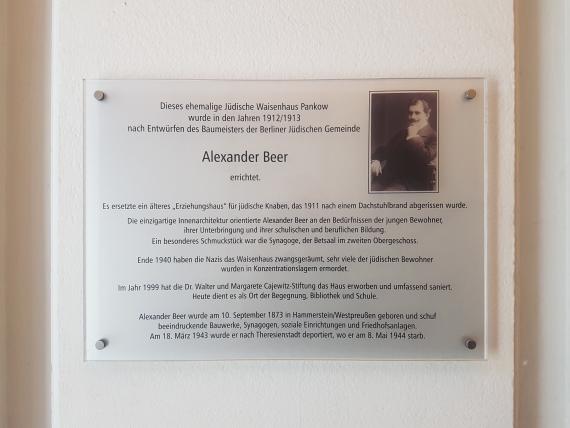
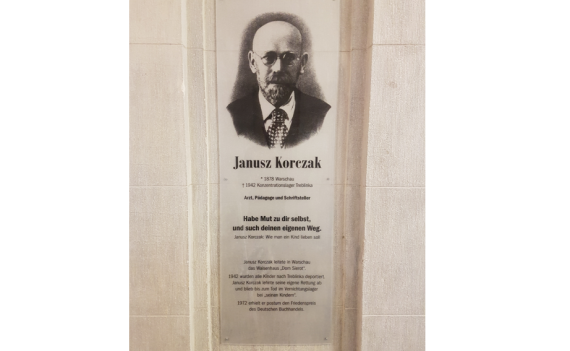
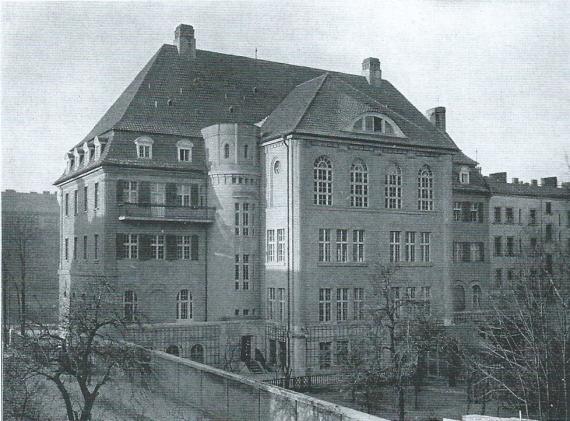
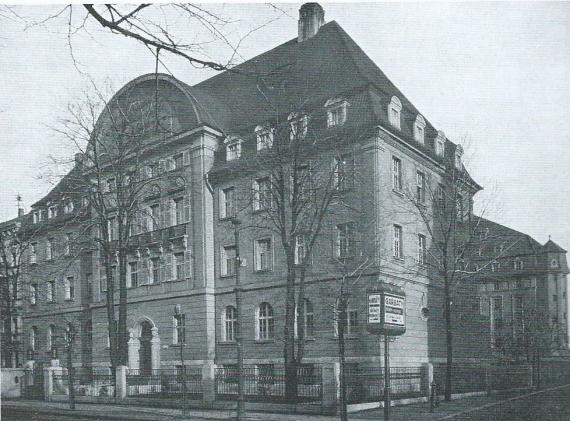
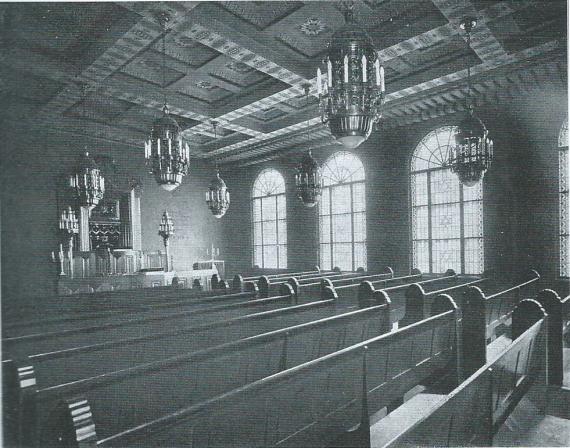
Add new comment